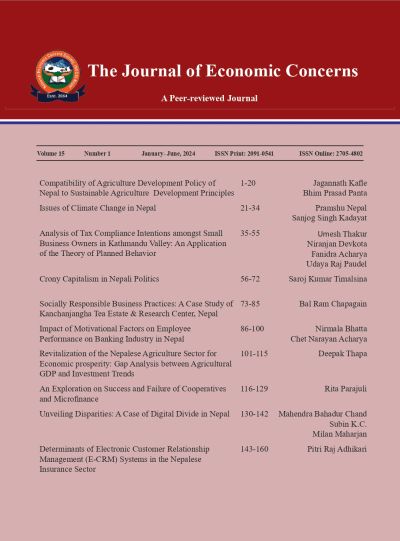Analysis of Tax Compliance Intentions amongst Small Business Owners in Kathmandu Valley: An application of the Theory of Planned Behavior
DOI:
https://doi.org/10.3126/tjec.v15i1.70239Keywords:
Tax Compliance, Small Business Owners, Government, Kathmandu ValleyAbstract
Governments heavily rely on tax revenue, imposing taxes on incomes, assets, and products of individuals and entities. However, tax compliance remains a global challenge due to complexities, systemic flaws, and taxpayer ignorance. In Nepal, particularly among small business owners, there is a lack of research on tax compliance intentions. This study aims to understand taxpayers' intentions regarding tax compliance, focusing on small business owners in Kathmandu Valley. The Theory of Planned Behavior (TPB) was employed to measure intentions using structured questionnaires and structural equation modeling (SEM) with SPSS and AMOS software. The study surveyed 200 small business owners, revealing that only 48.38% were aware of their tax compliance intentions. Additionally, 61.5% reported difficulties in paying taxes and criticized the government for insufficient tax awareness initiatives. Despite this, 74.74% believed that staying updated with changing government regulations could help manage tax challenges. The SEM results showed significant correlations between tax compliance intentions and factors like tax morale, tax complexity, and trust in the government. Most small businesses were registered and filed taxes annually, yet their compliance intentions were largely influenced by fear of fines. Furthermore, variables such as attitudes toward paying and avoiding taxes, belief in government, and the complexity of tax procedures also impacted compliance. The study concludes that improving tax services, enforcing more effective penalties, enhancing tax morale, and ensuring information transparency are crucial to facilitating tax compliance among small business owners in Nepal.




